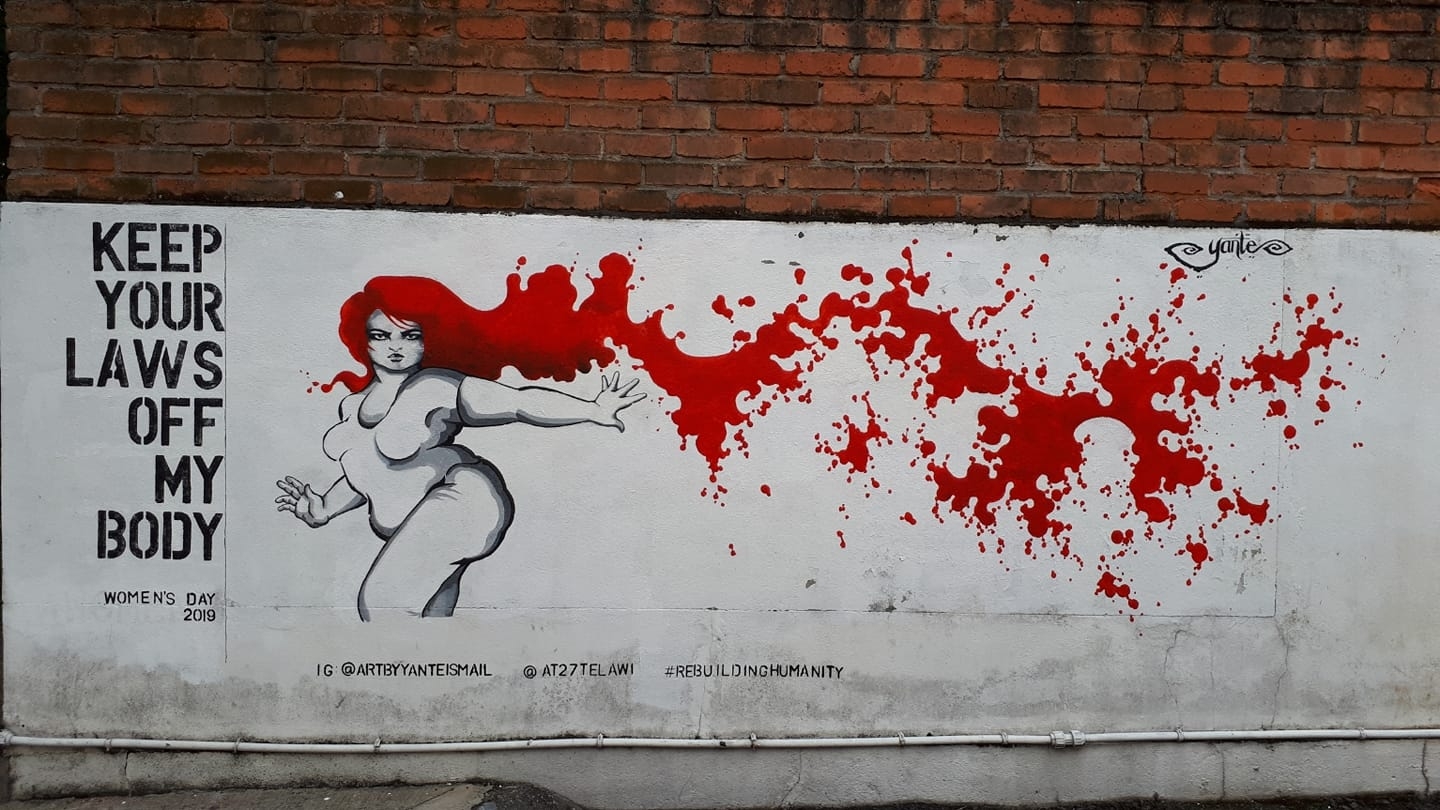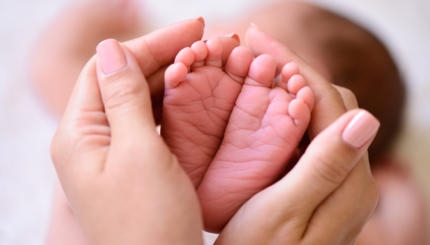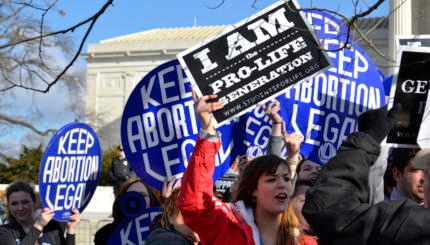I believe in a woman’s right to choose for herself what happens to her body.
When it comes to physical intimacy this means I believe the only thing that means yes is yes. This makes sense if you believe that, as a woman, I have the right to make that decision about my own body, who touches it, who undresses it, who has sex with it and so on. Even if the person who wants access to my body is my spouse, consent to that access is mine and only mine to give. Commonly, when a woman does not say yes to something done to her body, we call it harassment, assault or rape depending on the details.
I believe that as a woman, I have a right to choose what happens to my body when it comes to my health. If I want to eat nothing other than fast food, bags of chips and sweet tea all day, I have the right to do that. If I want to work out, eat a balanced diet and have an occasional dish of ice cream, I have the right to do that too. And while society may prefer for me to choose the latter and not the former, it is my body and therefore my right to binge, restrict, or moderate as I would like. I can fill my body with cigarette smoke or shots of whiskey a hundred times a day if I want to. If I have an illness, I have the right to choose to take treatment or not. It is my body and I can do with it as I please.
Jewishly, our bodies regardless of gender identity, belong to God and each individual is the entrusted steward of that body. Jewishly, smoking, excessive drinking, poor choices around health are not condoned even if legally they are. Jewishly, touch of any kind without consent is not permissible which accords with US law.
When considering both personal space and physical health, common sense, Judaism and the law all support the idea that as a person, regardless of my gender, I have the right to decide what happens with my body because my body is mine; It belongs to me. Women’s legal ownership of this body has been hard–fought through the ages. Once upon a time, not too long ago, my body belonged to my husband or my father. Susan B. Anthony and other great suffragettes like Harriet Tubman fought hard against great fear, misogyny, and sexism to fight for the right of my body to be mine. In their day, husbands could beat their wives, could have sex with their wives, could impregnate their wives and, the wife, being more property than person, had little recourse. Her body was not her own.
And now, here we are today. People do not question my right to choose who touches my body. People do not question my right to make medical decisions about my body. And yet, states like Georgia, Ohia, and Alabama are passing legislation that calls into question to whom my body belongs. The landmark Supreme Court Decision from 1973 known as Roe v. Wade says that a pregnant woman has the right to privacy in making a decision regarding an abortion. The right is not unfettered. It is balanced with the rights of the unborn–being carried by that woman. Roe v. Wade privileges the mother’s health while balancing her health with the health of an unborn–being in the third trimester.¹
Jewishly, a fetus is considered as an appendage of the body. As stewards of our bodies, Jewishly we do not condone removing an appendage for no reason. If, however, an appendage is unhealthy, that unhealth needs to be addressed. This is part of proper bodily stewardship. And if a limb’s unhealth comes to threaten the health of the overall body, it must be removed. This is not an option. This means, from a Jewish perspective, if a fetus is an appendage, and it threatens the health and well-being of the mother, Judaism mandates that the life of the mother is preserved.²
A woman’s body belongs to herself and is on loan from God. Roe v. Wade and Jewish text both understand that during pregnancy, your body is shared with the being coming to life within. As a woman and as a woman who has experienced pregnancy, this is not only reasonable, it is consistent with my own experience.
The new anti-choice laws from Georgia, where I am a resident, Ohio and now Alabama are known as “heartbeat bills,” and suggest that a woman’s body belongs primarily to the state. A woman’s body becomes the container for the potential life within from the time a heartbeat is detected. The Georgia bill goes so far as to give the 6-week fetus status as a person. This legislation allows for that being to be claimed on taxes as a dependent and as a child in considerations for child support. This suggests that a woman’s body is not even a body but rather a domicile in which the being resides. This view is not in line either with Jewish wisdom or with the Supreme Court’s ruling.
I believe that it is essential to maintain a woman’s right to choose regarding abortion because any other decision says a woman’s body belongs to someone other than her. In the age of #MeToo, where we as a society are learning that women’s bodies have belonged to their bosses, their coworkers, to power, to privilege, to entertainment, to ignorance, to arrogance, to everyone and everything else in the room but themselves, we must repeal this past and protect a woman’s right to choose what happens to her body. Focusing this conversation only on fetuses, only on heartbeats ignores the undercurrents of misogyny within American culture so many are working to disrupt. Heartbeat bills and other intensely restrictive choice legislation result in the subjugation of women to men and makes our bodies possessions of the state.³
Furthermore, legislating a woman’s choice regarding her own body is a vote of no confidence in a woman’s ability to choose. Not only does this legislation question to whom our bodies belong, it questions our morality, our wisdom, our intelligence, and our humanity.
Look, I get it. It is all complicated. And that’s the thing. Every situation is complicated. I understand wanting to ban abortion in cases where someone finds themselves pregnant because they were not careful or responsible. In how many situations is that the case? The women I know who have had abortions or have thought about having an abortion, this is never the situation. Each situation I know of is complicated and gut-wrenchingly painful. No one is advocating a cavalier attitude toward abortion. No one. What I am saying is that legislating anything which reduces choice is not the way to reduce abortions. Education, strong communities, loving societies will get us there better and faster than passing a blanket law which covers all or even most instances.
As these national conversations continue to evolve, as Ohio, Alabama, and Georgia Laws begin the slow climb through the legal system towards the Supreme Court of the United States, please ask yourself whose body is this?
[1] https://en.wikipedia.org/wiki/Roe_v._Wade
[2] Based on the material in Contemporary American Reform Responsa by Rabbi Walter Jacob, publ. by CCAR
[3] See also the May 2019 position statement on choice released by the Women’s Reform Network which can be found here.




